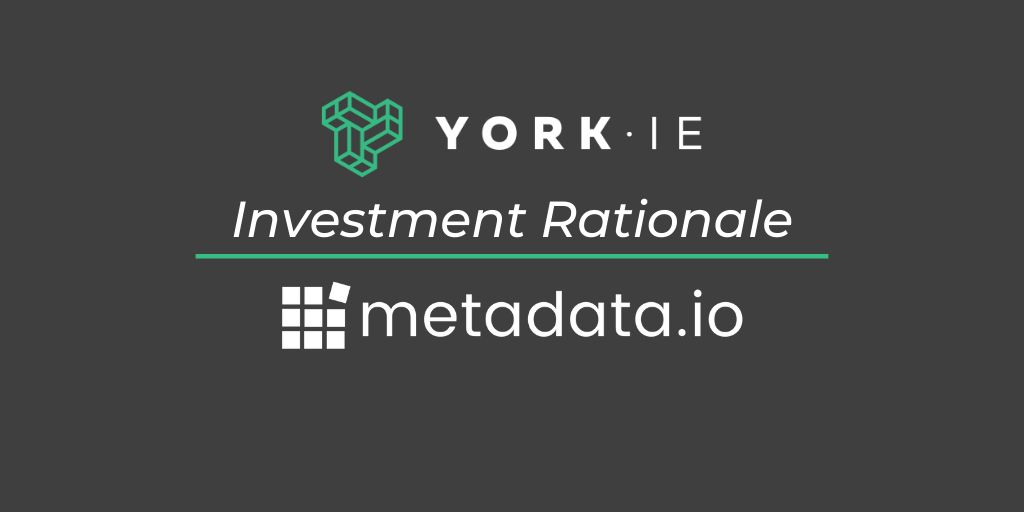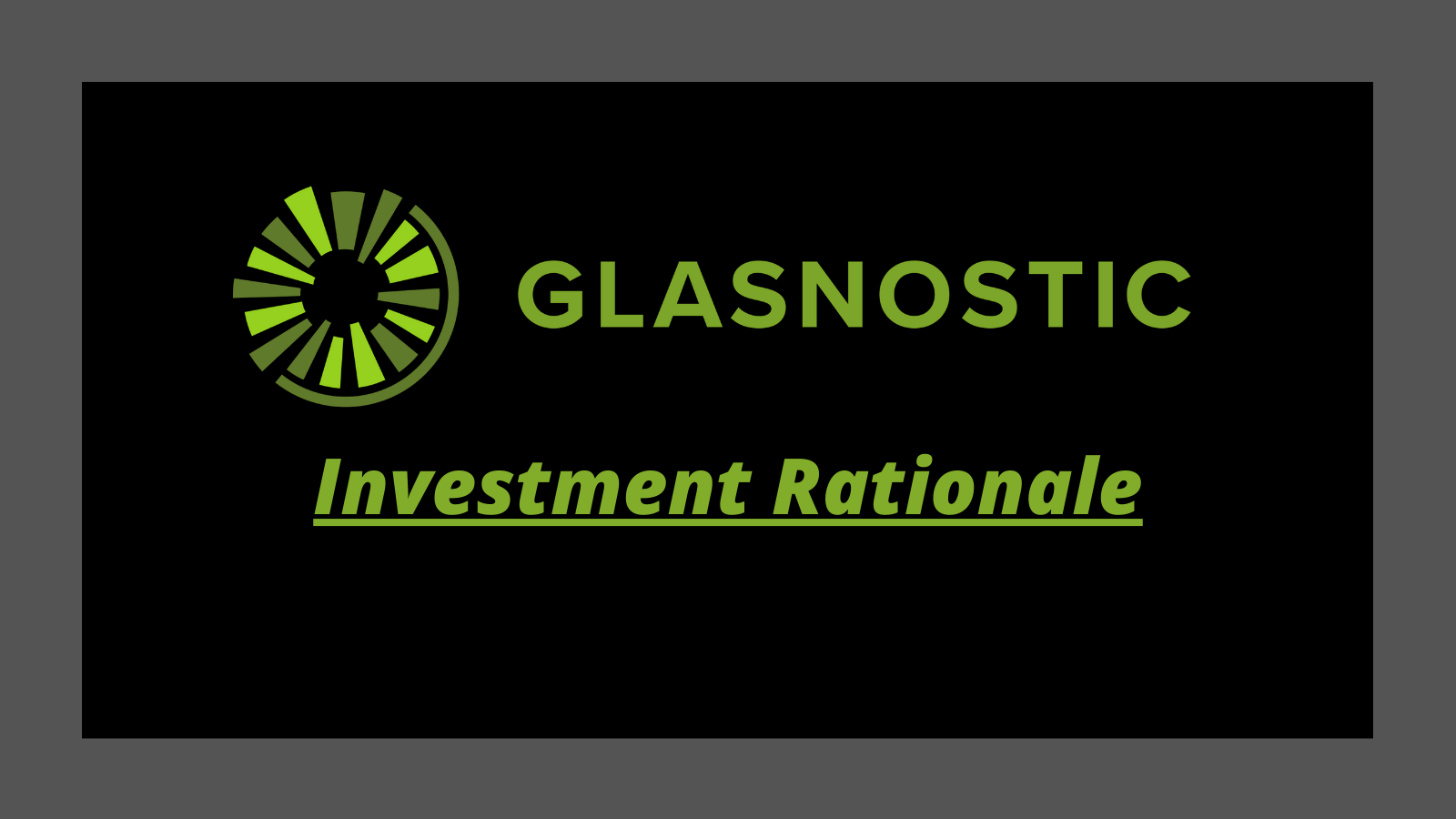The explosion of marketing technologies and targeting data in the last two decades has led to a dramatic increase in complexity in marketing execution. At the same time, marketing operations personnel (e.g. VP marketing) do not have the technical acumen to operate those technologies effectively. Gil Allouche, Founder and CEO of Metadata, experienced first hand the complexity of execution as a VP of marketing at three B2B businesses. He founded Metadata in order to abstract the complexity of the marketing stack, by putting AI versus people, at the center of execution, thus removing the biggest bottleneck to B2B marketing. Metadata is a San Francisco based startup that provides a solution that leverages human augmented AI to execute and optimize digital campaigns at scale to make demand generation fully autonomous. York IE is excited to invest in, and work with Metadata as our team strongly believes the company is poised to capitalize on a large market opportunity and help revolutionize the digital marketing industry.
Metadata autonomously generates sales demand without the need for manually executing campaigns, optimizing them or doing any of the leg work necessary for a successful campaign execution. It accomplishes this by leveraging human augmented AI to execute and optimize campaigns using the RESTful APIs of the marketing and sales stack. It also provides actionable recommendations from analysts and its AI algorithm to improve the digital assets, creative, audiences or targeting capabilities. By becoming the execution layer on top of MarTech, metadata is effectively robotic process automation (RPA) for a customer’s sales and marketing stack.
The process starts by the customer connecting their entire sales and marketing stack into Metadata. Metadata will then analyze historical data in the different systems to answer questions like:
- “What type of companies has this customer successfully sold to before, what was the revenue from these transactions? Time to close?”
- “What channels have historically been successful? Which channels haven’t we used before?”
- “What combination and permutations of historical campaigns worked?”
To answer some of these questions, Metadata will normalize the prospect and customer data in these technologies (e.g. Salesforce, Hubspot) and then run machine learning to identify the companies and people you sell best to. For example, by connecting Salesforce, Metadata will normalize all companies and contacts, then rank all opportunities based on dollar amount, outcome and timeline ($1m closed-won in 1 month ranked higher than $10k closed lost after 1 year), then understand the attributes (e.g. industry, technology used) that determine a good customer and persona, and finally produce a map of the customer’s total addressable market (TAM) and generate custom audiences that fit that ICP for targeting. Similarly, Metadata will establish a baseline in terms of historical performance, and begin testing all the marketing permutations it deems will be highly successful in terms of pipeline generation. Once the top permutations are identified, the platform will begin executing and continuously fine-tuning the campaigns (85%-90% eliminated, 10-15% high performers). Then it will constantly update those workflows and campaigns to achieve the highest outcome for the lowest price.
A great example of this is the ROI that Zendesk achieved by using Metadata. Within six weeks Metadata executed more than 500 campaigns for Zendesk (impossible to run manually without a large team/agency), achieved velocity of thousands of inbound leads from named accounts, then moved to the next task of optimizing unit economics. In an additional 4-5 weeks it reduced Zendesk’s customer acquisition cost (CAC) by 8-10x. Ryan Nichols, VP, office of CEO, elaborated on Zendesk’s experience using Metadata, stating, “Within weeks of using Metadata, Zendesk Sell deployed 400+ campaigns, yielded 3X the demand and created net-new pipeline from our target accounts. The results were so impressive that we doubled the investment as well as expanded into other BUs at Zendesk.”
Metadata provides several additional benefits, like automatically translating between the personal and corporate accounts of the companies and people targeted, allowing marketers to benefit from accurate “at home” targeting capabilities that historically have been impossible for B2B. For example, during Covid-19, Metadata customers have successfully targeted all of their buyers accurately although they work from home (WFH), due to the substantial PII signals metadata stores in its database. Similarly, when a prospect converts with their personal PII, Metadata knows how to convert them back into their corporate profile without asking for a single additional data point.
The current edition of the product is focused on web, paid social, programmatic channels and email (via Outreach.io and Google Suite) but plan to add capabilities in the near term to be able to support Google AdWords, website personalization, direct mail provider (e.g. Sendoso, PFL, Alyce), and conversational marketing platforms (Drift & Intercom). Metadata is the first solution to enable autonomous execution of marketing campaigns at scale, allowing enterprises to truly rely on their marketing teams for sales pipeline
As investors, the York IE team has held a dual-sided opinion on the MarTech sector. On one hand, it is unanimously agreed that it possesses a large market opportunity. A report from GroupM, a leading media investment company, states that digital marketers in the US spend over $221 billion on digital advertising. Metadata’s own bottoms up market analysis shows a total addressable market (TAM) greater than $3 billion. Their methodology was to analyze the number of customers of Hubspot, Marketo/Pardot, and Eloqua (good representation of the SMBs, mid-market firms, and enterprises investing in MarTech), assign an 80% B2B attachment rate, and then multiply each segment by their ACV to said segment. Our constant concern when evaluating an opportunity in MarTech is the cluttered nature of the sector. However, in the case of Metadata, the busy market is their advantage. Metadata is fixing MarTech by putting AI and automation at the center of execution, leveraging the existing marketing stack and making it more efficient.
Several facets separate Metadata from current account-based marketing tools. First, Metadata provides accurate B2B targeting capabilities at the individual level. While other solutions focus on companies and departments, thus wasting time and budget on entire teams that are unqualified, Metadata is 100% laser targeted on particular personas within named accounts, and marketers can preview the targets before spending portions of their budget on those. Second, and arguably most importantly, there is no human operation required for Metadata. This drastically reduces the time to run an optimization scope and removes the biggest hurdle in B2B marketing – the marketer. It also enables customers to focus on strategy, content and creative instead of technical, repetitive, and mundane tasks. This results in lower time to deployment, reduced cost and increased conversions. Lastly, the end result of the Metadata experimentation process has numerous benefits, like showing the exact outcome or lift of a certain marketing investment and the pipeline it created. This is why companies like G2 and Bombora recommend Metadata, as they can clearly show the customer the correlation between the data or creative they purchased and how it impacted their results. Metadata’s solution averages a 50-400% increase in lead to opportunity conversion rate with some customers seeing improvements as high as 10x.
The Metadata team is composed of experienced leaders with several startup successes represented amongst them. The team is led by co-founder and CEO, Gil Allouche. Gil is a proven technology startup executive with experience running marketing at companies such as Qubole, Karmasphere and TIBCO, where he led the SaaS marketing team. Prior to those experiences Gil was a software engineer in robotics and FinTech companies. Gil has also served as a first-sergeant in the communications unit of the IDF, and earned an MBA from Babson College. Metadata’s President, Olivier L’Abbe, was the SVP Sales at G2 where he helped lead the company from $1m to $45m in ARR in 4 years, and formerly led sales for Fliptop (acquired by LinkedIn). Olivier comes with strong MarTech and GTM experience, and was able to bring with him a world-class sales and business development team. Rounding out the leadership team are VP of Engineering, Emily Hoang, a former engineering leader at Chartio, and Jason Widup, an experienced marketing leader who worked at Getty, Tableau, Workfront and Lytics prior to Metadata. As evidenced by their wealth of experience, this is a team with proven track records in their core competencies and deep market knowledge.


